Cleaning a Fish Tank – A Complete Guide
Keeping a fish tank clean is essential for the health and well-being of your aquatic pets. A clean tank not only looks better, but it also provides a healthier environment for your fish. In this guide, we’ll go over the steps you need to take to keep your fish tank clean and healthy.
Step 1: Prepare Your Supplies
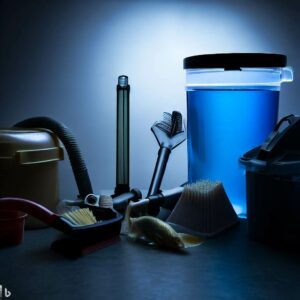
Before you start cleaning your fish tank, make sure you have all the necessary supplies on hand. You’ll need a bucket, a siphon or gravel vacuum, an algae scraper or pad, a water conditioner, and replacement water.
Step 2: Remove Algae
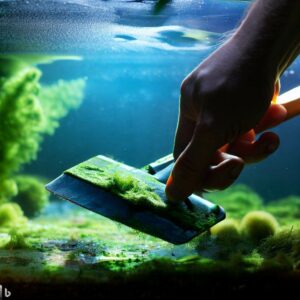
Algae can build up on the walls of your fish tank over time. Use an algae scraper or pad to gently remove any algae from the walls of the tank. Be careful not to scratch the glass or acrylic while doing this.
Step 3: Clean the Gravel

Next, use a siphon or gravel vacuum to clean the gravel in your fish tank. This will remove any debris and waste that has accumulated in the gravel. Make sure to follow the instructions for your specific siphon or gravel vacuum to ensure that you are using it correctly.
Step 4: Change the Water
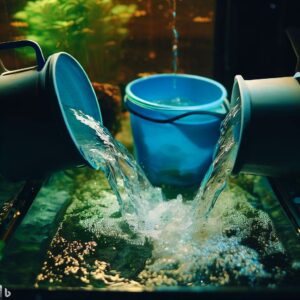
Once you have removed any debris from the gravel, it’s time to change the water in your fish tank. You should change about 25% of the water in your tank every two weeks. Use a bucket to carefully remove the old water from the tank. Then, add fresh, dechlorinated water to the tank. Make sure that the new water is the same temperature as the water in the tank to avoid shocking your fish.
Step 5: Clean the Filter
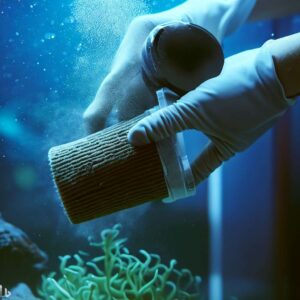
The filter in your fish tank helps to keep the water clean by removing waste and debris. It’s important to clean the filter regularly to ensure that it is working properly. Follow the manufacturer’s instructions for cleaning your specific filter.
Step 6: Add Water Conditioner
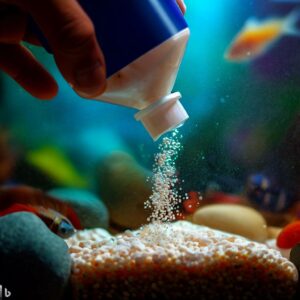
After you have changed the water and cleaned the filter, add a water conditioner to the tank. This will help to remove any harmful chemicals from the tap water and make it safe for your fish.
Step 7: Check Water Parameters

Finally, use a test kit to check the water parameters in your fish tank. Make sure that the pH, ammonia, nitrite, and nitrate levels are all within safe ranges for your fish. A guide for many common fish can be found here.
How Often Should You Clean Your Tank?
The frequency of cleaning your fish tank depends on several factors. These include the number of fish, the type of fish, the size of the tank and the quality of your filter. For many fish, cleaning the tank once a month is fine. However, carnivorous fish tanks likely need to be cleaned more frequently and every 2 weeks is recommended.
By following these steps and regularly cleaning your fish tank, you can provide a healthy and happy home for your aquatic pets.
